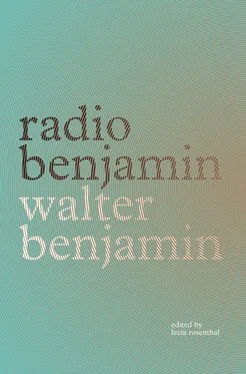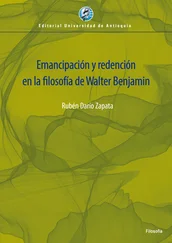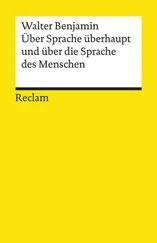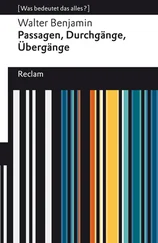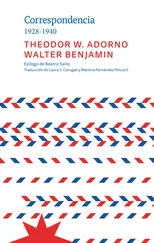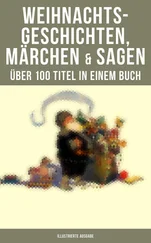11Adorno, Current of Music: Elements of a Radio Theory , ed. Robert Hullot-Kentor (Cambridge, UK: Polity, 2009), 89. Here Adorno attempts to adapt Benjamin’s famous discussion of aura beyond the visual to the question of sound reproducibility. After initially concluding that for music, the “idea of reproducibility” is fundamental rather than subsequent or external to the existence of the musical work, Adorno concedes that “in music something very closely akin to Benjamin’s observation can be found. The authenticity which Benjamin attributes in the visual arts to the original must be attributed to live reproduction in music ” (89, italics in original). In other words, the live performance becomes the locus of aura precisely insofar as recorded or broadcast material threatens to compete with or destroy it (89–90). Regarding radio, Adorno is critical not only of the “pre-technical” notion of the live, non-recorded performance as more authentic than the broadcast material, but also of any notion of radio as carrying over the live event’s putative uniqueness or the perceived immediacy of its “here and now”-ness. Radio, Adorno argues, may produce an effect of a “here and now” event, but this effect is “illusionary,” as it denies radio’s essential and ineluctable tendency to standardize, or to make broadcast an experience of the “ubiquitous” (93).
12Some of the radio stories for children, recorded in 2002 by Harald Wieser and broadcast by Radio Bremen, were made available on audio CD under the title “Aufklärung für Kinder: von Kaspar Hauser, einem alten Gefängnis, Pompeji und Hunden — nicht nur für Kinder” [Enlightenment for Children: On Kaspar Hauser, an Old Prison, Pompeii and Dogs — Not Just for Children] (Hamburg: Hoffmann und Campe, 2003).
13Walter Benjamin, Gesammelte Schriften , 7 vols., with supplements, eds Rolf Tiedemann, Hermann Schweppenhäuser, et al. (Frankfurt: Suhrkamp, 1972–89). Hereafter cited as GS.
14GS, 1.2, 759.
15This account is derived from two slightly different narratives provided in the GS: see GS, 1.2, 761 and GS, 7.2, 525. For an additional account by the GS editors of the archival history of the radio works, including their comments on the problem of access, see also GS, 2.3, 1440–3. For a brief account in English of this part of Benjamin’s archive, see Esther Leslie, Walter Benjamin (London: Reaktion Books, 2007), 11.
16On the scattered status of the literary radio talks, see the editors’ note in GS, 7.2, 608–9. In some instances, the scattering of these materials in the GS can be attributed to the fact that while Benjamin’s published versions of the essays survive, there is no known typescript of the original radio-broadcast form. This is the case for broadcasts of material such as the famous “Unpacking My Library,” which began as a broadcast on Radio Frankfurt on April 27, 1931.
17The forthcoming volume dedicated to Benjamin’s radio work, edited by Thomas Küpper and Anja Nowak, is scheduled to appear in Fall 2014. Entitled Rundfunkarbeiten , it is to be Volume 9 of the collective edition, Walter Benjamin: Werke und Nachlaß , to be published by Suhrkamp.
18Schiller-Lerg, Walter Benjamin und der Rundfunk , 540–1. On the overlapping, ninth category of Funkspiele [radio plays], which she uses in addition to the Hörspiele [radio or listening plays] and the Hörmodelle [listening models, Benjamin’s original term], see ibid., 218.
19The GS includes the radio plays What the Germans Were Reading While Their Classical Authors Were Writing, Much Ado About Kasper , and Lichtenberg under the category of “listening models” (GS, 4.2, 642–720). These three texts were initially published together as Drei Hörmodelle (Frankfurt: Suhrkamp, 1971). Given the specificity of Benjamin’s use of the term Hörmodell , or listening model, this categorization does not make sense for these radio plays. The miscategorization has contributed to some confusion in the scholarship, for instance in John Mowitt’s discussion of Benjamin’s Lichtenberg , in Radio: Essays in Bad Reception (Berkeley: University of California Press, 2011), 63–76.
20The first quotation is from Scholem’s notes to the correspondence, where he comments on Benjamin’s “denigratory assessment” of his radio work and other journalistic writings undertaken explicitly for remuneration. Scholem, notes to letter of February 28, 1933, in The Correspondence of Walter Benjamin , 404, n. 12.
21Scholem, The Correspondence of Walter Benjamin, 404, n. 12.
22For a history of Weimar broadcasting, see Karl Christian Führer, “A Medium of Modernity?: Broadcasting in Weimar Germany, 1923–1932,” Journal of Modern History 69 (December 1997), 722–53.
23Benjamin, The Correspondence of Walter Benjamin , 262. Momme Brodersen gives more details on Benjamin’s 1925 application for a position at the radio magazine Radio-Umschau [Radio Review], in Brodersen, Walter Benjamin: A Biography , trans. Malcolm R. Green and Ingrida Ligers, ed. Martina Dervis (London: Verso, 1996), 191–2.
24With Benjamin, the issue of help from his friends was always fraught; like any helpful intervention, it signaled the very need for help, or the kind of vulnerability and dependency that for Benjamin began as financial and professional exposure (in part due to his lack of university affiliation and the impossibility of an academic career, Benjamin having been thwarted in his efforts to successfully submit the Origin of German Tragic Drama as his Habilitation in July 1925), and that would, through and beyond the period of the radio years, grow into the political and existential duress that famously contributed to his suicide at the border in Spain in September 1940. For Benjamin’s comments on the “helpful intervention of [Adorno’s] friends,” and on the precariousness of dependence and the limits of gratitude, see his letter to Adorno of March 18, 1934, in Benjamin and Adorno, The Complete Correspondence 1928–1940 , ed. Henri Lonitz, trans. Nicholas Walker (Cambridge, MA: Harvard University Press, 1999), 34. All of this is to say that Schoen’s assistance, so crucial to the story and fact of Benjamin’s work for Radio Frankfurt, was both invaluable and symptomatic of the precariousness of Benjamin’s intellectual life and the professional circumstances that sometimes supported it and sometimes failed to do so.
25Adorno, “Benjamin the Letter Writer,” in Notes to Literature Vol. II , trans. Shierry Weber Nicholsen (New York: Columbia University Press, 1992), 237.
26“Junge russische Dichter” is one of the broadcasts for which there is no precise or reliable surviving manuscript. (See the Appendix.) The GS editors, along with Schiller-Lerg ( Walter Benjamin und der Rundfunk , 345), agree that this broadcast probably corresponds to Benjamin’s article “Neue Dichter in Russland,” which was published in the international review i 10 (Amsterdam, 1927) and can be found in GS, 2.2, 755–62.
27For more information on the dates of broadcasts, see the Appendix.
28Benjamin to Scholem, January 25, 1930, in The Correspondence of Walter Benjamin , 361, 403–4. See also Benjamin’s letter to Scholem on February 5, 1931, where he refers to his radio work in Frankfurt as merely “some piddling radio matters” (Scholem, Story of a Friendship , 211). For further mention of the increasingly constricted conditions that leave him with fewer opportunities to work on radio, see The Correspondence of Walter Benjamin , 395–6, 399, and Story of a Friendship , 239.
Читать дальше
